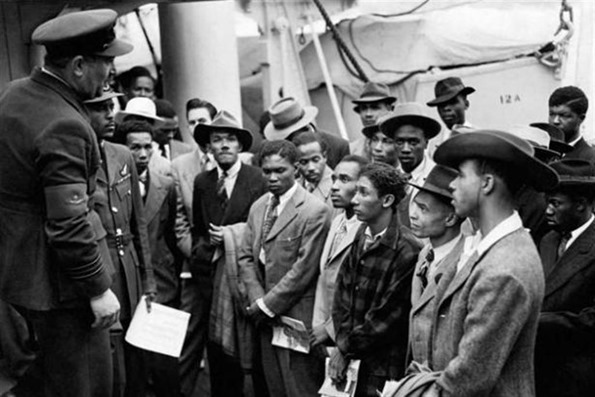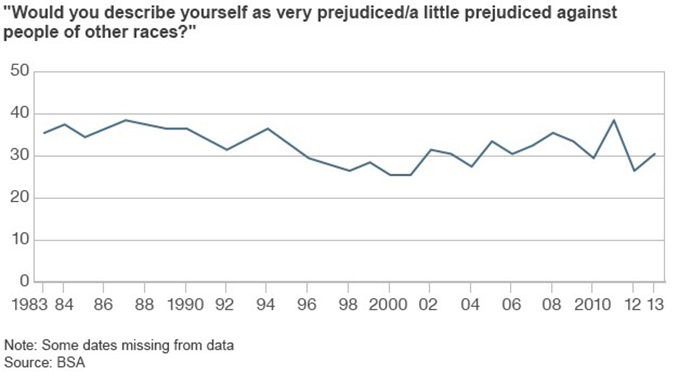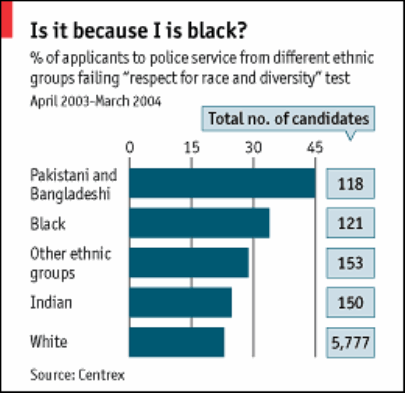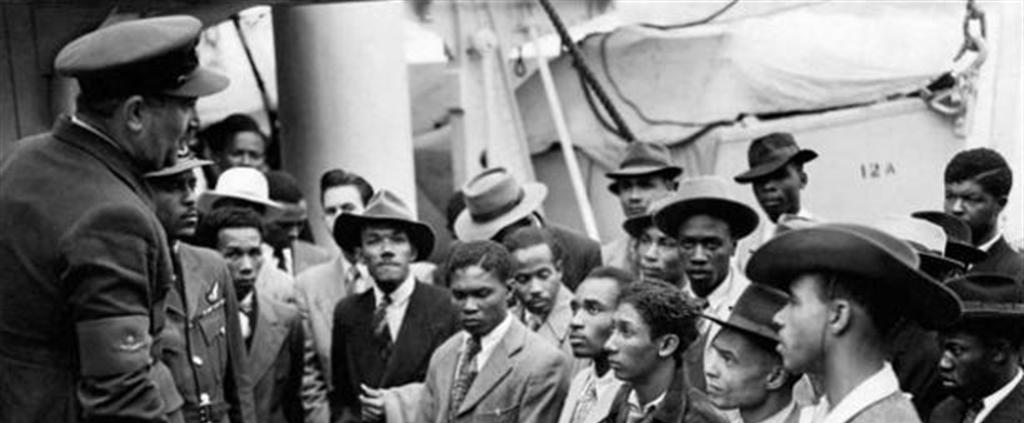Western Spring
June 6, 2014

Does anyone remember “racial prejudice”? It was something we were supposed to deplore when I was at school, which was quite a long time ago. It came after “the colour bar” but before “racism” and seems to have meant roughly the same, whatever that was or is. Therein lies the problem, the phrase is of such infinite flexibility and vagueness that it can be made to fit almost any hint of racial awareness or feeling – by white people of course.
I was reminded of this almost forgotten phrase by a report in the Daily Mail. The report (with a promising headline screaming about a “rise in racism”) was into a piece of research conducted by the British Social Attitudes Survey which asked some 2,000 respondents whether or not they were “racially prejudiced”. What caused all the alarm was that the proportion who said that they were prejudiced had risen from 25% in 2000 to 30% last year, a rise attributed to 9/11 and the reaction against immigration. My reaction was quite different – “is that all, after 17 years of ever rising immigration?” In the eighties and early nineties the percentage was regularly between 35% and 40% although immigration was then running at much lower levels and generally believed to be under control; it then declined sharply to 25% at the millennium.

What is going on? As the survey was conducted by face to face interviews it is perhaps surprising that so high a percentage were willing to admit to a stranger that they had such disgraceful feelings, surely there must be a much higher proportion who are not willing to admit it? We should probably apply the old rule of thumb which opinion pollsters use when dealing with this sensitive area; divide by three and multiply by four. It still leaves unanswered the question why levels were higher before 1995 when immigration was not such a prominent issue?
I believe that there are two answers. The first is simply that ethnic minorities are now a significantly larger part of the population than they were then, and – interestingly – they seem to interpret “racial prejudice” as meaning prejudice by whites against them, not the prejudice which they themselves may feel for others (Indians for Pakistanis, West Indians for Africans etc.). This curious lack of awareness by ethnic minorities of the beams in their own eyes is brought out by the regional figures – in Inner London where, as we all know, White Brits are thin on the ground, the proportion drops to 15%. Among the young where, again, ethnic minorities are over-represented, the proportion is 25%. The second reason is political correctness – it can now be dangerous to one’s career and social standing to be seen to be a “racist” in a way which was not the case twenty to thirty years ago.
There is one aspect of the survey from which we can take heart; 73% of those who declared themselves to be wholly unprejudiced still want tougher controls on immigration – they may say that they have no objection to ethnic minorities, but they would rather not have any more. Among those who admitted to prejudice, 90% want tougher controls – the only surprise being that 10% of these hard-liners do not!

